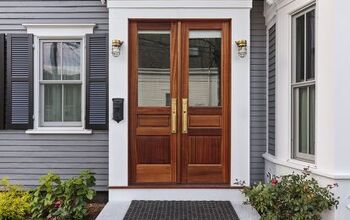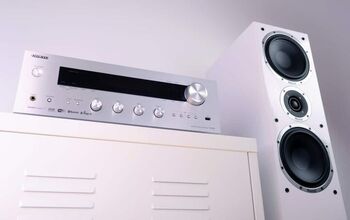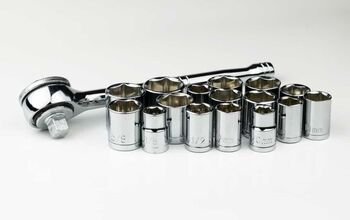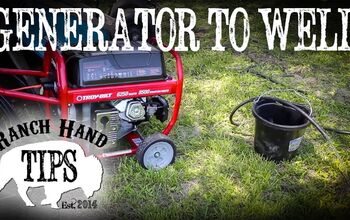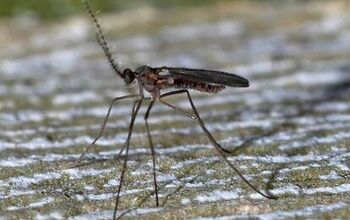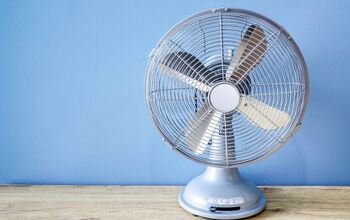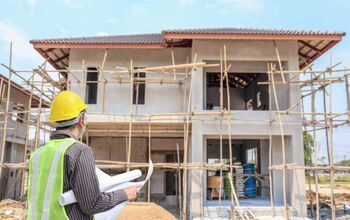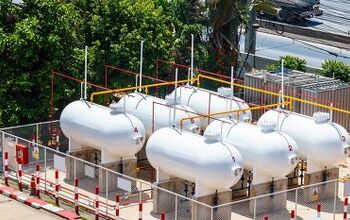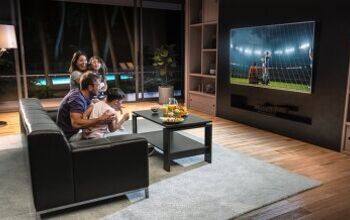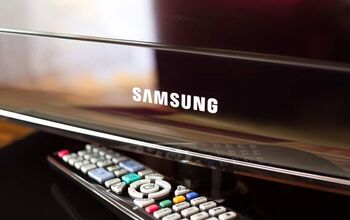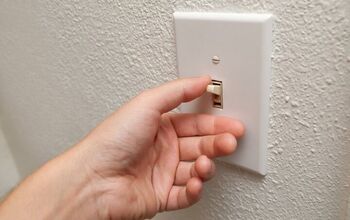Wired Connection Slower Than WiFi? (Possible Causes & Fixes)

Wired connection is slowly becoming a thing of the past, although it is still semi-popular for its reliable speed. Why all of a sudden isn’t it delivering the results you’ve come to expect? Here’s what to do when your wired connection is slower than WiFi.
If your wired connection is slower than WiFi, it’s likely due to worn ethernet ports or signal interference. Try resetting your electronic device or purchase a new router for around $300. If all else fails, have an experienced ISP technician troubleshoot your router.
Keep reading to learn why your wired connection is slower than WiFi and how to fix each possible cause!
Need Wiring Installation or Repair Services?
Get free, zero-commitment quotes from pro contractors near you.

What’s the Difference Between Wired Connection and WiFi?
Knowing the difference between the two will help you understand why your wired connection might be slower than WiFi.
The dissimilarity is fairly obvious- a wired connection uses an ethernet cable to connect your electronics to the internet. Conversely, WiFi utilizes radio signals to connect devices to the internet. The fastest WiFi speeds are around 7 Gbps (Gb per second), while the fastest ethernet speeds can exceed 40 Gbps.
The reason for this is because wired connections are more efficient at transmitting bulk data. WiFi requires less equipment but can fall victim to other device interference due to its reliance on clear signal pathways.
The best way to imagine this is by looking at the ethernet cable as protective fencing for the wired connection signal pathway. Few things can interrupt it, while WiFi has essentially no gatekeeper.
You can now see why it’s cause for concern when your WiFi outperforms a wired connection.
Reasons Why Your Wired Connection Is Slower Than WiFi
Now, it’s time to get to the bottom of why you’re having this issue.
6 Reasons Why Your Wired Connection Is Slower Than WiFi:
- Signal Interference
- Computer Hardware Virus
- Issues with Your Internet Service Provider
- Poor Cable (Worn or Too Short)
- Worn Ports
- Router Malfunction
If you’re struggling with slow speed on your wired connection, follow along to identify the reason below!
Reason #1: Signal Interference
Like we mentioned above, a wired connection is much more secure than WiFi. That doesn’t mean that it is COMPLETELY immune to intrusion.
Wired connections are susceptible to signal interference from devices like external speakers or radios. One of the most common culprits is microwaves! Microwaves can leak electromagnetic radiation, which degrades wired signals, thus slowing down your internet.
How to Fix the Problem
The solution is simple.
It is recommended to move any ethernet cabling at least 20 feet away from your kitchen (or microwave). This gives your wired connection enough space to do its job and safely carry signals to the appropriate places.
Additionally, refrain from using your microwave too often when you’re on the internet.
Reason #2: Computer Hardware Virus
Sometimes your computer itself is to blame for the poor wired connection signal.
Your computer is responsible for sending and receiving data to the internet. If it’s not operating at peak condition, your wired connection could be suffering. Data viruses and malware can slow down your computer’s network response time and input/output processing speeds.
If you suspect this is the culprit, there’s a way to solve this.
How to Fix the Problem
The quickest way to remedy this problem is to restart your computer. If you feel like it needs a clean slate, try:
- Unplugging all cables from your computer and turning it off for 3 minutes.
- Use a can of compressed air to remove dust from your computer and the ethernet ports.
- Insert the cables back into your computer, turn it on, and try connecting again.
Upon restarting, the quick refresh should have booted any bugs from your system.
Another solution is to check for a software update and run that. Otherwise, you may have to call in a computer technician to troubleshoot the source of the virus.
Reason #3: Issue with Your Internet Service Provider
Issues with your internet service provider can also lead to a poor connection speed with wired cables.
This is because your wired connection signal might not be getting all the bandwidth it needs to run at peak speed. That could happen when there are too many people using the same network in your household or as a result of an ISP company-wide outage.
How to Fix the Problem
Get in touch with your internet service provider immediately. They have ways of resolving this problem through prioritizing certain bandwidths or upgrading your plan.
Your ISP might also be able to send a representative to your home to check the connection. If this turns out not to be an issue with their service, it’s their job to remedy the situation.
Otherwise, you might consider switching service providers if you find yourself in this situation often. Certain ISPs provide better service depending on the area you live.
Reason #4: Poor Cable (Worn or Too Short)
Another common reason for slow internet is because the cable you’re using has seen better days or isn’t long enough.
If the cable is too short, it may be pulling out of its port. On the opposite end of the spectrum, your ethernet cable shouldn’t be longer than 100 meters. The farther the signal has to travel, the more speed it will lose.
Additionally, if your cable is worn, it may not be able to transmit signals properly.
How to Fix the Problem
To ensure that your ethernet cord isn’t causing your wired connection to be slower than WiFi, make sure it meets this criterion:
- Between the length of 10-100 meters
- Has no signs of wear or fraying
- Is less than 20 years old
If this is not the case, you can buy a new cable at your local electronics store or on Amazon. The price will vary depending on how long you need it to be and what category it is.
Common Categories of Ethernet Cables Include:
- Cat5 Cable: 0.1 Gbps (or 100 Mbps) of ethernet connection; 100 MHz in frequency
- Cat6 Cable: 10 Gbps of ethernet connection; 250 MHz in frequency
- Cat7 Cable: 10 Gbps of ethernet connection; 600 MHz in frequency
- Cat8 Cable: 40 Gbps of ethernet connection; 2,000 MHz in frequency
Reason #5: Worn Ports
Worn-out or dirty ethernet ports can also slow down your wired connection speed.
There are usually four ethernet ports on a router. The most common reason for worn ports is because you’re using the same one repeatedly. In ports used less often, dust can collect.
How to Fix the Problem
If you find that one of your ports is worn out, there’s an easy solution: switch it up.
Additionally, you can use pressurized air to clean each of the dirty ports. If you have an older router with multiple damaged ethernet ports, consider replacing it.
Reason #6: Router Malfunction
If all of your ethernet ports are in good condition but still aren’t working properly, this could mean that the router itself is broken.
Check out these early signs that a router is going bad:
- Your wired connection seems slower than usual.
- Your internet signal strength has decreased significantly.
How to Fix the Problem
When you’re dealing with faulty hardware, you can either get a professional to troubleshoot your issues or buy a new one altogether.
A router can be upwards of $300, so if you choose to replace it, here are a few things to consider:
- Wired connection speed will usually be faster on a newer model (typically more expensive).
- Wired connections might not be available on cheaper/older models.
So do your research and read reviews before buying!
Related Questions
Why is wired connection slower than WiFi with my PS5?
If your wired connection is slower with your PS5, it’s likely due to interference between the gaming console and your router. Your ISP network is being overworked.Consider getting another router to ease the workload.
How do I perform a wired connection speed test?
Make sure your router’s network cable is plugged in and firmly seated.
- Open your browser (Google Chrome, Safari, etc.)
- Go to www.speedtest.net
- Click ‘Go’
This will tell you how many Mbps your wired connection is operating at.
Can you extend a wired internet connection?Yes, you can extend an ethernet cable with either a UTP ethernet extender or coaxial cable extenders.
Need Wiring Installation or Repair Services?
Get free, zero-commitment quotes from pro contractors near you.

Final Thoughts
If you’re experiencing slower than usual wired connection speeds, it’s likely due to a damaged ethernet port or signal interference.
You can try resetting your electronic device by powering it off and waiting 3 minutes before turning it back on. This should fix any hardware bugs that are impacting connection speed.
Another option is to purchase a new router; one of these should cost around $300, if not more, depending on the model you choose. Before upgrading, have an experienced ISP technician come troubleshoot the parts in case they can be salvaged.

Emily is a copywriter with over five years of experience in crafting content for the home renovation and remodeling industry. She loves house projects, whether it be painting a room or tweaking small design elements to transform a space. Her favorite aesthetic is french modern because of its clean lines and airy feeling! When not writing, Emily loves to travel and check out architectural details all over the world.
More by Emily Carr



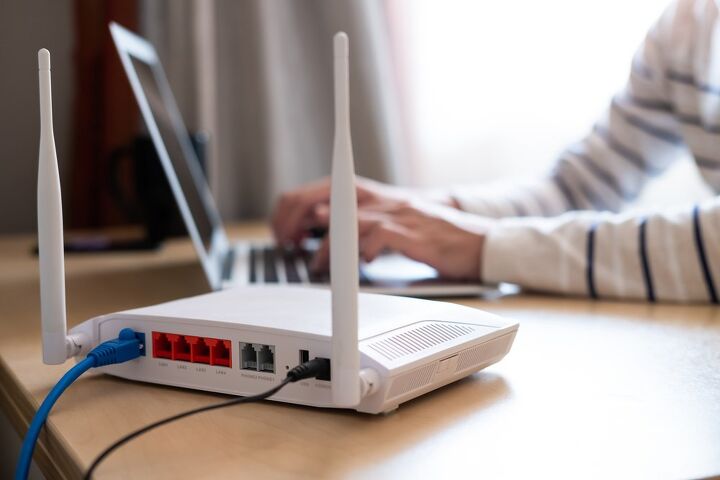
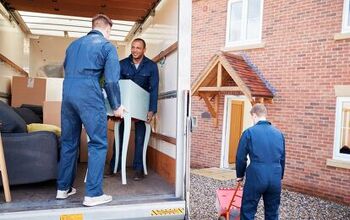





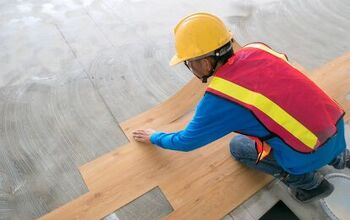
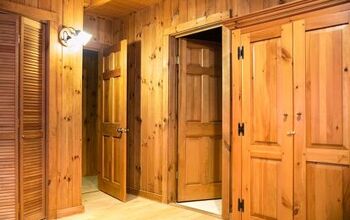
![10 Best Electric Pressure Washers – [2022 Reviews & Guide]](https://cdn-fastly.upgradedhome.com/media/2023/07/31/9070600/10-best-electric-pressure-washers-2022-reviews-guide.jpg?size=350x220)
